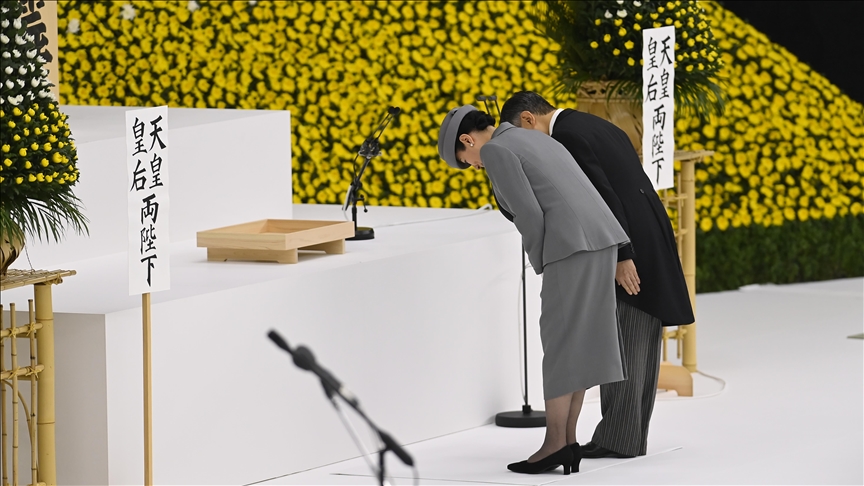Ex-Japanese premier who apologized for wartime aggression dies at 101
China urges Japan to uphold Tomiichi Murayama’s 1995 statement on World War II aggression
 File Photo
File Photo
ISTANBUL
Japan’s former Prime Minister Tomiichi Murayama, who apologized for the country’s aggression during World War II, died on Friday at the age of 101.
He served between June 1994 and January 1996 and was the first socialist prime minister in 47 years, Kyodo News reported.
Then the leader of the Social Democratic Party, Murayama was elected premier following an unprecedented alliance with long-time political rival—the conservative Liberal Democratic Party (LDP). A small LDP splinter group, New Party Sakigake, was also part of the coalition.
He issued the statement on Japanese aggression in 1995 on the 50th anniversary of the end of World War II, expressing “deep remorse” and “heartfelt apology” for “the tremendous damage and suffering” inflicted by its colonial rule and aggression.
Besides, the Murayama government passed legislation in 1994 to “provide redress to surviving victims of the atomic bombings of Hiroshima and Nagasaki.”
The report said it also had set up a semiofficial relief organization, Asian Women's Fund, in 1995 to “pay compensation to women who were forced into sexual servitude in Japanese military brothels during World War II.”
The organization has since collapsed.
A native of southwestern Oita province, Murayama was first elected to parliament in 1972 and served eight terms in the lower house before bidding adieu to politics in June 2000.
While extending “sincere sympathy” to the family of Murayama, China Friday said it lodged a protest with Tokyo over “offerings” to controversial wartime temples.
It came as Japanese Prime Minister Shigeru Ishiba, as well as the ruling LDP’s newly elected President Sanae Takaichi, sent ritual offerings to Yasukuni Shrine.
Yasukuni Shrine “is a spiritual tool and symbol of Japan’s militarism that waged wars of aggression abroad, enshrining 14 Class-A war criminals who bear serious responsibility for such wars,” China’s Foreign Ministry spokesman Lin Jian told reporters in Beijing.
“China firmly opposes Japan’s passive actions concerning Yasukuni Shrine and has lodged solemn representations with the Japanese side.”
Lin reminded Tokyo to uphold the "Murayama Statement" of 1995, which “represents a solemn acknowledgment and commitment by the Japanese government to the people of victim countries in Asia and the international community regarding that period of aggression and colonial rule.”
Anadolu Agency website contains only a portion of the news stories offered to subscribers in the AA News Broadcasting System (HAS), and in summarized form. Please contact us for subscription options.







